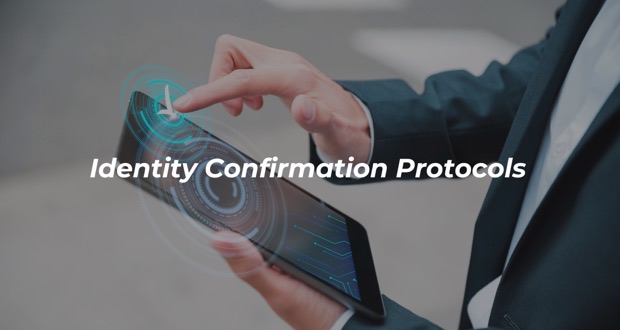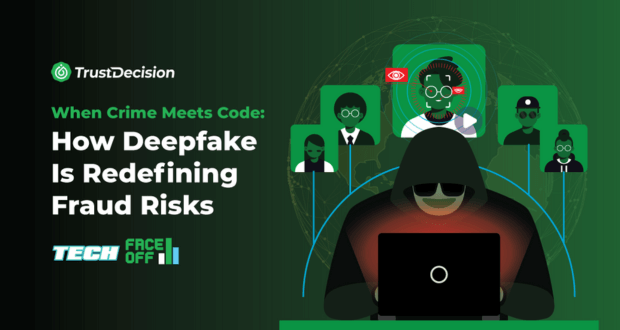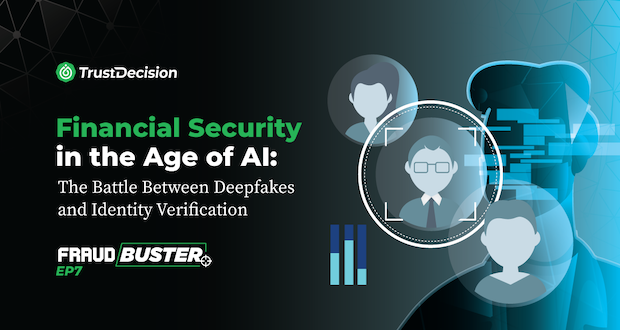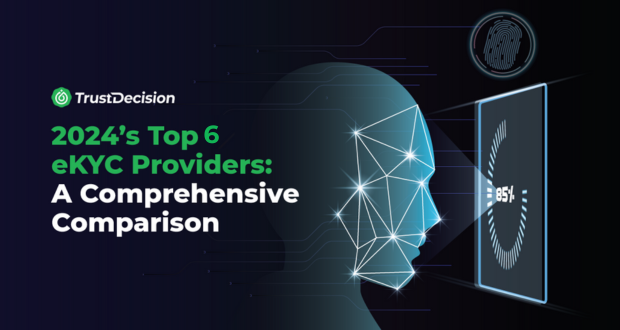Recent Security Breaches
In our interconnected digital world, verifying user identities has become a critical task. Recent security breaches serve as stark reminders of the risks posed by inadequate identity verification. For instance, Truist Bank, one of the largest banks in America, suffered a significant data breach in October 2023. Employee information appeared for sale online, with a hacking group called Sp1d3r claiming responsibility. The dataset is reportedly being sold for around $1 million. Truist, which manages over $500 billion in assets and employs 65,000 staff members, notified a small number of clients at the time of the breach, highlighting the severe implications of compromised identity verification protocols.
Similarly, Life360, the company behind the Tile tracker device, experienced a breach in June 2024. The affected data includes names, addresses, email addresses, phone numbers, and Tile device identification numbers, exposing users to potential identity theft and other malicious activities. In another incident, Ticketmaster confirmed a data breach from earlier in the year, compromising records for over 560 million customers. The stolen information included names, addresses, phone numbers, email addresses, order histories, and partial payment information, demonstrating the
As we delve deeper, we will explore how modern verification technologies address these challenges without compromising user experience, ensuring that businesses can maintain both security and customer satisfaction.
Understanding Identity Verification
Identity verification is the process of confirming that an individual is who they claim to be. This is achieved through various methods, such as checking government-issued IDs, biometric data, and other personal information. The primary role of identity verification is to safeguard sensitive information and ensure that only authorized individuals can access certain systems, services, or data. In an era where digital interactions are ubiquitous, robust identity verification protocols are essential for maintaining the integrity and security of online transactions, protecting both businesses and their customers from fraud and unauthorized access.
The Impact of Compromised Identities
The consequences of compromised identities can be devastating for both businesses and individuals. For businesses, a breach can lead to significant financial losses, legal repercussions, and damage to their reputation. Customers may lose trust in a company that fails to protect their personal information, leading to a decline in customer loyalty and potential revenue loss. For individuals, identity theft can result in financial hardship, emotional distress, and long-term damage to their credit and personal records. The ripple effects of compromised identities underscore the importance of implementing effective identity verification measures to mitigate these risks.
Modern Verification Technologies
To address these challenges, modern verification technologies have evolved to provide more secure and user-friendly solutions. One such method is biometric authentication, which uses unique biological traits such as fingerprints, facial recognition, and iris scans to verify identity. This approach significantly reduces the reliance on easily compromised passwords and provides a seamless yet secure user experience.
Another cutting-edge method involves automated ID checkers that validate official documents in real-time. These systems use advanced algorithms and machine learning to quickly and accurately verify the authenticity of IDs, enhancing both the speed and reliability of the identity confirmation process.
Comprehensive identity verification services combine various methods, including biometric authentication and automated ID checkers, to offer a holistic approach to identity confirmation. These services often include real-time checks and risk assessments, leveraging artificial intelligence to adapt to emerging threats and ensure continuous protection. By integrating these modern technologies, businesses can effectively address security concerns without burdening users, striking the right balance between robust protection and user convenience.
Key Components of Identity Confirmation
Biometric Authentication
Biometric authentication is at the forefront of modern identity confirmation methods, offering a seamless yet secure way to verify identities. This technology leverages unique biological traits such as fingerprints, facial recognition, and iris scans to confirm an individual's identity. Unlike traditional passwords, which can be easily forgotten, stolen, or compromised, biometric data is inherently tied to the individual and is much harder to replicate or forge. For instance, fingerprint scanners and facial recognition systems are now commonly used in smartphones and other devices, providing users with a quick and convenient way to access their accounts while maintaining high security standards. By reducing reliance on easily compromised passwords, biometric authentication enhances both security and user experience.
ID Checkers and Verification Services
Automated ID checkers represent another critical component of effective identity confirmation. These systems are designed to validate official documents such as passports, driver's licenses, and national ID cards in real-time. Using advanced algorithms and machine learning, automated ID checkers can quickly and accurately verify the authenticity of these documents, ensuring that only legitimate IDs are accepted. This not only enhances the accuracy of the identity verification process but also significantly improves efficiency, allowing businesses to process verifications faster and with greater confidence. The ability to instantly validate IDs reduces the risk of fraud and unauthorized access, providing an additional layer of security.
Identity Verification Services
Comprehensive identity verification services combine multiple methods to offer a holistic approach to identity confirmation. These services integrate biometric authentication, automated ID checkers, and other advanced technologies to create a robust verification system. One of the key features of these services is real-time checks and risk assessment. By leveraging artificial intelligence and machine learning, these systems can continuously monitor and evaluate potential threats, adapting to new risks as they emerge. This dynamic approach ensures that identity verification remains effective even as the threat landscape evolves. Comprehensive identity verification services provide businesses with a powerful tool to protect sensitive information, prevent fraud, and maintain regulatory compliance, all while delivering a seamless user experience.
By incorporating these key components—biometric authentication, automated ID checkers, and comprehensive identity verification services—businesses can build a robust identity confirmation framework that addresses security concerns without compromising on user convenience.
TrustDecision's Identity Verification Solution
TrustDecision stands out as a trusted provider in the realm of identity verification, offering cutting-edge solutions designed to meet the highest standards of security and user experience. With a commitment to safeguarding sensitive information while ensuring a seamless user journey, TrustDecision has become a go-to partner for businesses looking to enhance their identity confirmation protocols. The company's innovative approach integrates advanced technologies to deliver reliable and efficient identity verification services, tailored to the unique needs of various industries.
ID Checker and Verification Services
Comprehensive Background Checks: To further enhance identity confirmation protocols, organizations can utilize comprehensive ID checker and verification services such as those offered by TrustDecision. TrustDecision's Identity Verification Service provides an all-rounded proactive defense solution designed to confirm identities with high accuracy and reliability. One of the key features of this service is its comprehensive background checks, which verify email addresses, phone numbers, and IP addresses, and perform sanction checks to identify potential risks. By detecting irregular behavior, TrustDecision helps prevent spam registrations and bot infiltrations, thereby safeguarding the integrity of the verification process.
Smart Multi-Factor Authentication (MFA): Another critical component of TrustDecision's service is its smart multi-factor authentication (MFA). The system employs continuous monitoring to trigger MFA when abnormal behavior is detected, ensuring that additional verification steps are taken only when necessary. This adaptive decision engine learns from new fraud patterns, enhancing its ability to detect and respond to potential threats. By balancing security with user convenience, TrustDecision's MFA system ensures that legitimate users are not inconvenienced while maintaining a high level of security.
Precision in Reducing False Positives: Finally, TrustDecision excels in reducing false positives through the use of advanced algorithms and machine learning. These technologies minimize the occurrence of false positives, ensuring that legitimate users are not mistakenly flagged as potential threats. This precision in reducing false positives allows TrustDecision to maintain robust security measures without causing unnecessary friction for users. By integrating these advanced identity confirmation protocols, organizations can significantly enhance their security posture, protect sensitive data, and maintain the trust of their users.
Data Privacy and Compliance Assurance
In the realm of identity confirmation, ensuring data privacy and compliance with regulatory standards is paramount. Organizations must adopt practices that not only protect user data but also adhere to stringent legal requirements.
Maintaining Accessible Privacy Policies: To align with regulations such as the General Data Protection Regulation (GDPR) and the California Consumer Privacy Act (CCPA), organizations must maintain clear and accessible privacy policies. These policies should outline how user data is collected, stored, and used, providing transparency and building trust with users.
Guaranteeing Data Safety and Integrity: Robust data protection measures are essential for safeguarding sensitive information. This includes employing encryption, secure data storage solutions, and regular security audits to ensure the integrity and confidentiality of user data.
Efficient Onboarding with eKYC
Efficient onboarding processes are crucial for both user experience and regulatory compliance. Electronic Know Your Customer (eKYC) solutions streamline the verification process while ensuring adherence to legal standards.
Access to a Wide Range of Document Types: TrustDecision's identity verification service supports over 13,000 document types from 270 countries. This extensive coverage allows organizations to verify identities from a diverse global user base, ensuring compliance with international standards.
Real-Time Biometric Checks: The service employs real-time biometric checks using Optical Character Recognition (OCR), liveness detection, and facial comparison. These technologies enhance the accuracy and speed of the verification process, ensuring that identities are confirmed quickly and reliably.
By prioritizing data privacy and compliance, and leveraging efficient eKYC solutions, organizations can not only meet regulatory requirements but also enhance user trust and streamline their onboarding processes.
Conclusion
In an increasingly digital world, the importance of robust identity confirmation cannot be overstated. Effective identity verification protocols are essential for minimizing risks, protecting sensitive data, and maintaining trust in business operations. By confirming that users are who they claim to be, organizations can prevent identity theft, fraud, and unauthorized data access, thereby safeguarding their assets and fostering a secure environment for their customers and stakeholders.
As we have explored, both traditional and digital methods of identity verification have their roles, but the future lies in leveraging advanced technologies such as biometric authentication and comprehensive ID checker services. Solutions like TrustDecision's Identity Verification service offer a proactive defense against fraud and unauthorized access, combining comprehensive background checks, smart multi-factor authentication, and precision in reducing false positives.














